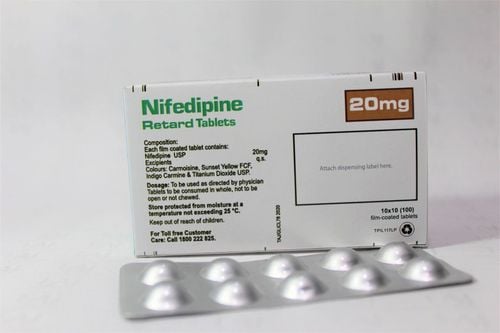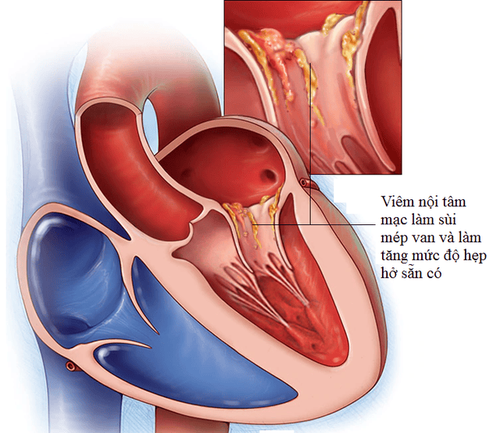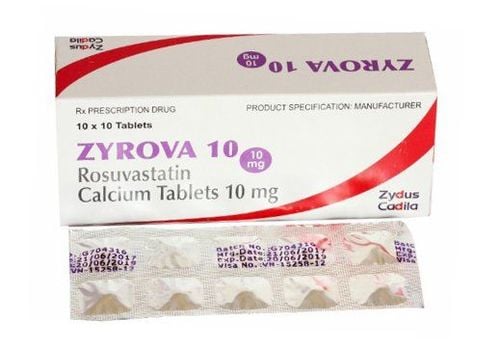This is an automatically translated article.
The article is professionally consulted by Master, Doctor Do Nguyen Thuy Doan Trang - Head of Extracorporeal Circulation Team - Cardiovascular Center - Vinmec Central Park International General Hospital. The doctor is a leading expert in Extracorporeal Circulation in cardiac surgery and cardiac resuscitation, Cardiovascular medical treatment.Children with cardiovascular disease if not examined and treated early, the disease can lead to serious health effects later, even have the risk of death. So what signs need to conduct a cardiac examination for children?
1. Cardiovascular examination for children with congenital heart disease
Children with congenital heart disease often have quite obvious symptoms. Therefore, the baby's parents can easily notice abnormal signs and go to medical facilities to check the child's heart. For a normal newborn, if the baby is born with congenital heart disease, every time the baby suckles or cries, it will often be accompanied by signs of shortness of breath or only suck for a moment, then leave the mother's breast to regain his breath. Children breathe fast, nose flaps fast, strong, nagging, irritable. In addition, babies with the disease are more likely to have purple lips when feeding or crying.For babies born prematurely, with low birth weight, children with birth defects such as Down syndrome, cleft lip, body defects such as missing or extra toes, head that is too big or too small compared to normal, parents should give See your doctor for a heart exam for children because these children are often at high risk for congenital heart defects.
Congenital heart disease in children can manifest later when the child is a little older. At that time, children often have coughing, wheezing repeated continuously many times, shortness of breath, manifestation of chest indrawing when inhaling, accompanied by pneumonia. The bodies of these children are often stunted, in poor health, and slow to grow. There are children who become pale, their lips, toes, and fingertips show signs of bruising and dark purple when they cry or push, children sweat cold... Congenital heart disease often makes children grow slower. compared with other normal babies, with symptoms such as: slow teething, very gradual weight gain, crawling longer, slow turning, accompanied by poor feeding and poor feeding.
Therefore, as soon as you are pregnant, you should go for a fetal echocardiogram at a cardiology specialist to detect and treat congenital heart disease in the fetus, if any. Today, medicine has developed very advanced, ultrasound technology is able to detect the majority of congenital heart cases even when the fetus is only a few months old.
When children are older, there are still warning signs of cardiovascular diseases. Parents need to recognize early to take their children to the doctor and conduct timely treatment.
Trắc nghiệm: Bạn hiểu gì về sức khỏe tim mạch?
Bệnh tim không chỉ ảnh hưởng đến nam giới, mà còn là nguyên nhân gây tử vong hàng đầu ở phụ nữ. Các dấu hiệu lên cơn đau tim (nhồi máu cơ tim) của hai giới cũng có thể khác nhau. Cùng làm bài trắc nghiệm sau để xem bạn có chọn đúng những quyết định tốt cho tim hay không?
Bài dịch từ: webmd.com
The following content is prepared under supervision of Bác sĩ chuyên khoa I, Lê Thanh An , Nội Tim mạch , Khoa Khám bệnh & Nội khoa - Bệnh viện Đa khoa Quốc tế Vinmec Nha Trang
2. Early recognition of rheumatic heart disease in young children
Rheumatic heart disease in children is an inflammatory disease of the connective tissue, often occurring after pharyngitis caused by group A beta-hemolytic streptococci, resulting in damage to many organs, mainly the heart, joints, nervous system, skin and subcutaneous tissue, but damage to the heart is considered the most dangerous.Rheumatic fever begins with acute pharyngitis, with symptoms such as congestion of the posterior wall of the pharynx and tonsils, possibly accompanied by white pus spots, high fever all over the body, pale skin, exhaustion, and swollen lymph nodes. in the jaw angle. In addition, pediatric patients also have joint manifestations, statistics show that about 80% of children with rheumatic heart disease will have joint damage. At that time, lesions appeared in most of the children's joints, including the hip.

When noticing signs of rheumatic heart disease in children, parents need to take them to a medical facility to conduct a cardiac examination for children, from which the child is treated positively and in the right direction.
3. Symptoms of heart failure in children
Heart failure is likely to occur even in young children. The symptoms below are the most common symptoms of heart failure in children. However, each baby will often show different symptoms, not all cases, including:Swollen feet, especially in the ankles, eyelids, on the face and sometimes in the abdomen . Unusually rapid breathing, difficulty breathing, or shortness of breath and shortness of breath. Fatigue, nausea, poor appetite. Drowsiness when eating or too weak to eat. Unusual weight gain in a short period of time, despite a loss of appetite (usually due to water retention) Cough and congestion in the lungs Profuse sweating when eating, playing, or exercising Difficulty breathing even during everyday activities, especially when walking and climbing stairs. Reduced muscle mass. Slow weight gain, or sometimes no weight gain Changes in body temperature and skin color (usually cold, moist or hot skin, profuse sweating) In addition, symptom severity depends on pumping capacity The blood of the heart has been affected to some extent. Symptoms of heart failure in children can be confused with other medical conditions. Parents when taking their children to a cardiologist need to pay attention to the child's expression so that they can provide more information and support the doctor's diagnosis process.
4. Where is the child's heart check-up?
Parents should choose a reputable hospital that has comprehensive expertise, services and facilities for children's cardiovascular examination. In which, Vinmec Central Park Cardiovascular Center - one of the key centers of Vinmec Health System that has achieved JCI global certificate - is the wisest choice.The center is invested with modern equipment and well-trained human resources, bringing together many leading experts in the field of Cardiology.
Especially, from July 2019, Vinmec Central Park International General Hospital (HCMC) implemented a Cardiovascular Treatment Package (BUNDLE PAYMENT). This is an advanced treatment model applied at many famous Cardiovascular Centers of the US and other developed countries.
Package treatment model is one of the activities to realize the policy of "Patient is the center" at Vinmec International General Hospital, in order to bring the following preeminent benefits to customers:
Treatment multi-specialty: The patient will have a comprehensive and thorough treatment plan by a multi-specialty team, coordinated from many fields; The treatment regimen is standardized according to the standards of prestigious cardiovascular associations in the world; Patients have direct access to the most appropriate and optimal regimen, avoiding the need to test many different treatment methods that are costly or reduce the effectiveness of treatment; Increase recovery, reduce hospital stay; Peace of mind about the treatment plan and proactive about treatment costs;
Please dial HOTLINE for more information or register for an appointment HERE. Download MyVinmec app to make appointments faster and to manage your bookings easily.















